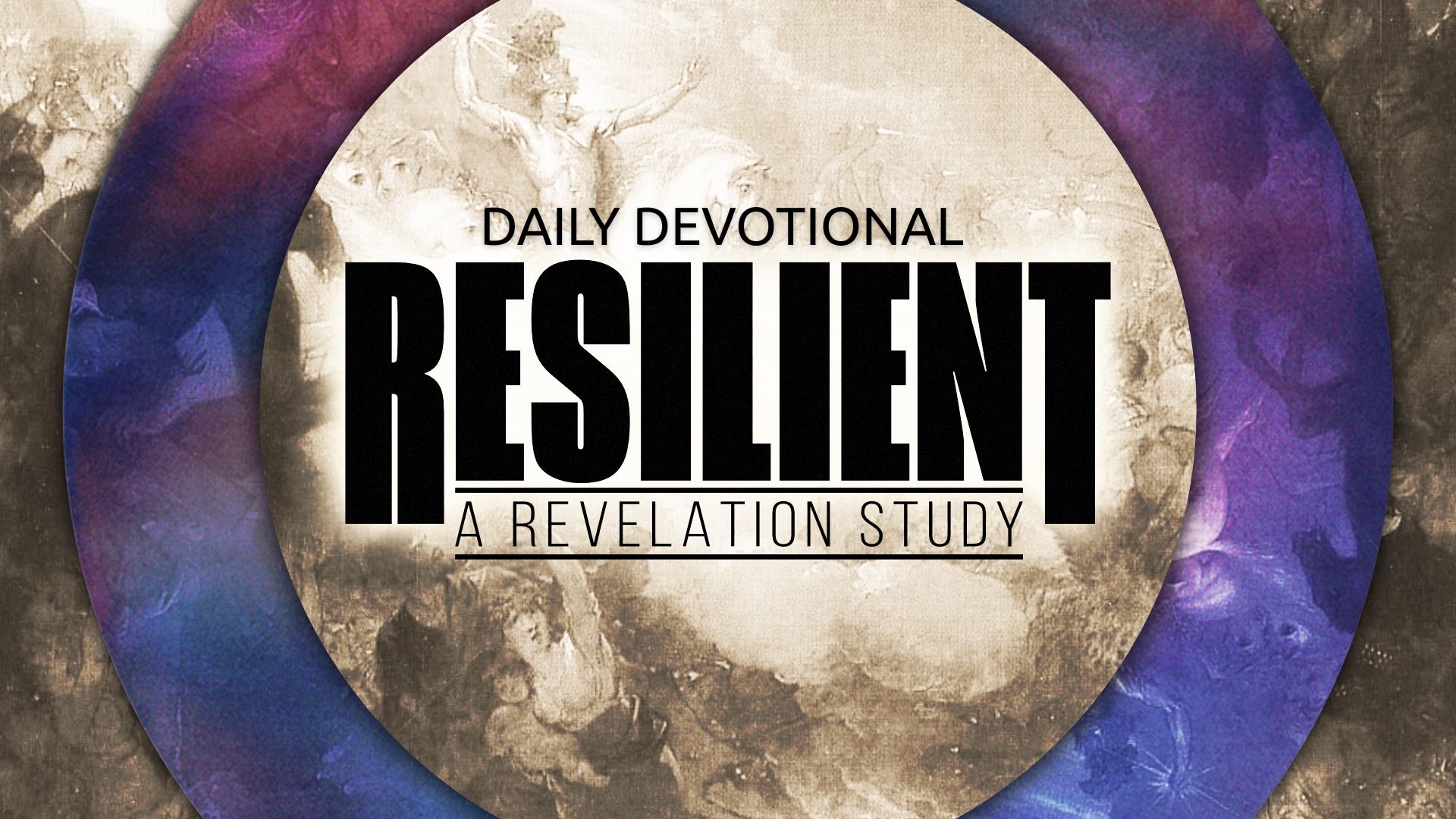Resilient – A Revelation Daily Devotional – Day 1
Day 1 – July 28th
Read or listen to the audio version of the Bible Reading and Daily Devotional.
From the very beginning, the book of Revelation presents itself as both beautiful and complex. The text reveals a degree of dual authorship. On one hand, we have John, the beloved disciple of Jesus, author of the Gospel of John and 1, 2, and 3 John, who pens this book. However, he opens the discourse by citing Jesus as the primary authority behind this Revelation. This intriguing dynamic provides comfort to the reader, inviting us to consider a sovereign and powerful God of the universe who continues to work through chosen human vessels. Jesus, having taken on flesh and provided an atoning death for humanity, now reaches out from glory to reveal ultimate reality in the form of a prophetic, apocalyptic letter.
Each of these three literary categories—prophecy, apocalypse, and letter—plays a significant role in how this book is read, interpreted, and understood. However, we must resist the urge to engage in speculative interpretations and instead allow what is known to strengthen the faith of our ecclesiological (church) family. Let us consider what can be gleaned from this introduction regarding the purpose of this personal word from Christ.
Perhaps the answer lies in the first word of verse 3, “Blessed.” This adjective is striking, considering John’s intended audience: seven churches existing at the same time of his writing, as well as himself. John is imprisoned on the desolate island of Patmos, a place where the Roman Empire exiled political prisoners. His audience, or at least a portion of it, those seven churches (more on this tomorrow), faced what Western-American culture might consider unimaginable religious persecution. Yet, it is from this place and to these people that Christ, through John, calls them to be blessed.
This blessing does not come through conquest or immediate vindication, as John and his readers might have preferred. Instead, it comes through hearing and living the words that follow. This concept of hearing and doing finds root and can be better understood in John’s other writings, such as John 8:51 and 1 John 2:3. The idea of knowledge or hearing of God’s word inspiring action is a consistent theme throughout the biblical canon.
This concept urges the modern reader to move beyond seeking knowledge for its own sake. Theological understanding gains value only through personal application, prompting action. The blessing highlighted here extends beyond mere reading and interpretation; it resides in an exegetical process that ignites action and deepens affection for Christ. The blessing conveyed in the message to come is anchored in a relationship with Christ that inspires transformative action.
It is unlikely that the modern reader will immediately experience the profound epiphany often sought when reading Revelation upon examining this brief introduction. However, key insights in these verses must be emphasized to make that understanding possible. John’s introduction prepares the reader to view this complex literary work as a call to blessing that transcends circumstance. I do not pretend to understand the specific challenges each of you faces as you read this guide, but I confidently proclaim that the weeks ahead call you to an unwavering hope. This hope is anchored not in circumstance or life experience, but in an incarnate God who, in the pages to come, will unveil His ultimate plan.
Jesus has conquered death. It is from this victorious position that He proclaims that believers find hope and resilience. If death is defeated, what do we have to fear? What can rob us of hope or purpose? Or, to put it another way, “If God is for us, who can be against us?”
Pray:
God, help me to see where you are working in my life, and call me to a greater trust in Your goodness and grace. Amen.


